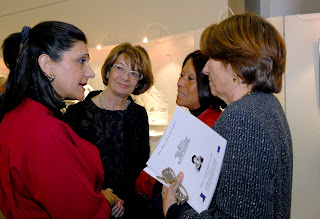In this respect, Marie Panayotopoulos-Cassiotou MEP presented the Commission with a Written Question on the legislative cover for self-employed persons performing mobile road transport activities. The Greek MEP requested the Commission to state how self-employed persons performing mobile road transport activities are covered by legislation after 23 March 2009, the date on which their exemption from the application of Directive 2002/15/EC(1) expired.
The answer to Mrs Panyotopoulos-Cassiotou's question was given by Vice-President of the European Commission for Transport, Antonio Tajani.
The EU Commissioner declared: "The Commission adopted its report on 23 May 2007. On the basis of this report and an extensive impact assessment, the Commission adopted a proposal on 15 October 2008 to amend Directive 2002/15/EC. In this proposal, the Commission has chosen the option to exclude self-employed drivers from the scope of the Directive because the general legislative framework within which road transport is carried out had considerably evolved in the meantime. In particular, Regulation (EC) No 561/2006 on driving times and rest periods and Directive 2006/22/EC on controls have been adopted and the digital tachograph, which is an effective control device, has been made mandatory. As driving time covers by far the greater part of the working time of all drivers, employed and self-employed, the impact assessment showed that the grounds for inclusion of genuine self-employed drivers in the scope of the Directive, in respect of road safety, conditions of competition, the structure of the profession and social aspects were not sufficient to warrant additional rules on the working time of self-employed workers which would have required the imposition of an administrative burden for control purposes out of proportion with the limited added value offered by the inclusion of such workers under the Directive.
While it can be argued that in the absence of a decision to the contrary by 23 March 2009, the Directive applies to self-employed drivers, the Commission stands by its proposal to exclude them for the reasons given above. In accordance with its usual practice, and in these circumstances, the Commission does not have the intention to initiate infringement proceedings against Member States that have not made the Directive applicable to self-employed drivers as from 23 March 2009, and this as long as the prospect of an amendment to the Directive by Parliament and Council on the basis of the Commission proposal remains. This, however, is without prejudice to Member States' right to apply stricter rules for road transport operators established on their territory".























